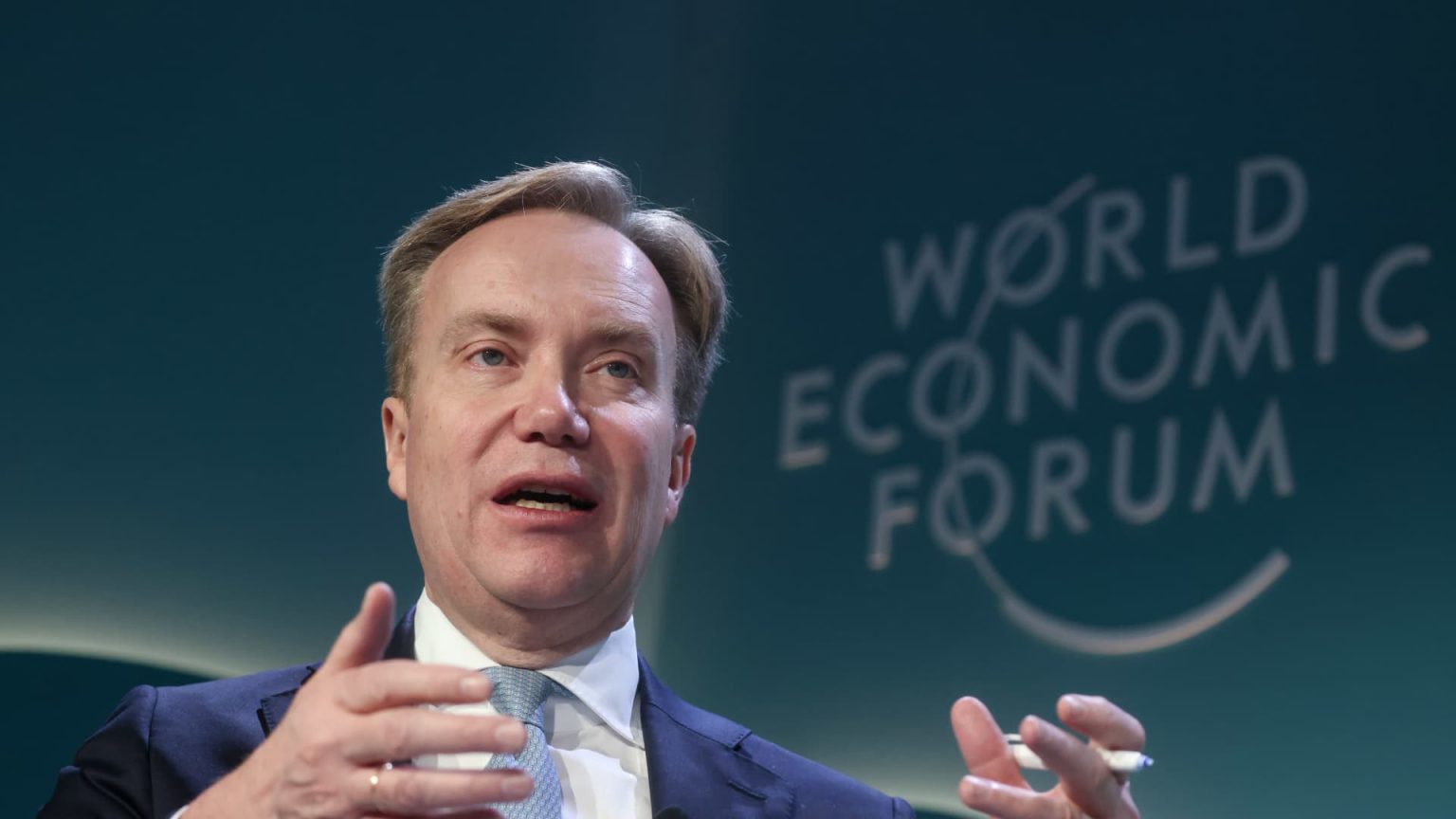Borge Brende, president of the World Economic Forum, expressed concerns about the global economy during a special meeting in Saudi Arabia. He warned that the world faces a decade of low growth if the right economic measures are not taken. Global debt ratios are nearing levels not seen since the 1820s, and there is a risk of “stagflation” in advanced economies. The current global growth rate is 3.2%, lower than the 4% trend seen in previous decades. There is a need to avoid a trade war and address the growing global debt situation.
Brende emphasized the importance of maintaining trade relations and global value chains while adapting to changes. He highlighted the need for governments to address the high levels of global debt without sparking a recession. He also pointed out the inflationary pressures and the potential of generative artificial intelligence as an opportunity for developing countries. The International Monetary Fund’s recent report warned that global public debt had reached 93% of GDP in 2023 and could approach 100% by the end of the decade.
The IMF also highlighted the high levels of debt in China and the United States and the impact of loose fiscal policies on global funding costs. Despite these challenges, the IMF raised its global growth forecast slightly, citing the resilience of the world economy in the face of inflationary pressures and monetary policy changes. The forecast now predicts a global growth rate of 3.2% in 2024, a slight increase from its earlier projection. Brende identified the geopolitical risks as the biggest threat to the global economy, citing recent tensions between Iran and Israel as an example.
He warned that escalating conflicts could lead to a sharp increase in oil prices, which would have a damaging impact on the global economy. Brende’s remarks align with calls for a more collaborative approach to address economic challenges and geopolitical risks. It is crucial for governments and international organizations to work together to find solutions that promote sustainable growth and stability. By taking proactive measures to address debt levels, trade tensions, and geopolitical risks, the global economy can navigate through the current uncertainties and pave the way for a more stable future.


